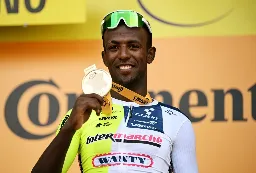I haven't had the exact problem you're describing but I have torn my meniscus playing soccer, which leads to similar problems. I would strongly recommend against taking shortcuts during treatment. I found it to be a recurring problem when I was initially trying to get back to playing and to be honest I can still have little lock-ups even today (three years later) if I am not careful. A professional soccer player at my local club was out for fourteen months with a recurring meniscus injury - he re-tore it twice just straight line running during his recovery and ended up needing three surgeries in total. Knee cartilage injuries shouldn't be underestimated just because they're not the dreaded ACL tear. Often the long-term recovery can be more complicated than a ligament tear.
I recommend taking the recovery slow and easy and working with a physio to build strength around the knee and hips (hip strength will improve your stability and reduce load on the knee). You will lose muscle mass during the recovery period, leaving the knee exposed to re-injury. Personally I chose to give up on returning to soccer due to the potential risk involved and transitioned into long-distance running instead, but it sounds like you're not doing anything that extreme so hopefully you won't experience any long-term restrictions following surgery and rehab.
Yeah, LineageOS can definitely help a lot. I have a Redmi Note 4X from 2017 with 3 GB RAM and a Snapdragon 625. It was fine running an older version of MIUI despite being a budget phone, but after switching to LineageOS it runs even better. But to be honest you don't even need a lighter ROM like LineageOS if the phone was a good one at release. I also have a Galaxy Note 9 from 2018 which is running stock and that still feels great despite how heavy OneUI is. Often these older devices just need a reset to clear out all the junk that accumulates over years of use.
I think the questions over whether some newer phones can handle five or even seven Android version upgrades are valid, since that has never been attempted before (though I still like to see those commitments). But that is very different to saying every phone until now has magically turned terrible after 4 years, when it's likely only running a version of Android that is, at most, two above what it started with.
Not yet but Maguire is still facing criminal charges for other matters. Berejiklian was rewarded with a nice cushy job as Managing Director at Optus - a role they specifically created when hiring her.
Nice try, but that's a) a dogshit budget phone and b) one that is 8 years old, not 4.
That's not what you said originally:
unoptimized software starts crippling phones after 4 years
So you admit that age is not actually the relevant factor here? Your complaint is bad updates, not the age of a device. And if bad updates are the problem, which you admitted they aren't for you when you said you'd "never used a phone long enough for this to matter" then your claim that replaceable batteries are irrelevant is also nonsensical. It's as I suspected: you've concocted some weird fictional narrative as a coping mechanism for the cognitive dissonance that comes with repeatedly replacing phones that are absolutely fine.
The OnePlus 12 was released less than a year ago. It has 3 1/2 years of software changes ahead of it. You are proving my point here by implying a 7 month old phone needs to be replaced after a single bad update.
People lie to themselves all the time to justify wasteful consumerism.
Changable batteries, maybe, for the environment. But I've never used a phone long enough for this to matter because unoptimized software starts crippling phones after 4 years anyway.
This is absolute bollocks. Unless you are buying dogshit budget phones, they all continue to run fine after 4 years. I have phones from 2017 and 2018 that continue to operate without major issue today. Until very recently most Android phones weren't even receiving feature updates beyond 4 years so I suspect you've just completely fabricated this story to justify your upgrades.
It's a point of difference in a segment of the market where phones are often thick and heavy.
Yeah, it's a massive overreaction but that's the nature of the Olympics. People are so high on the patriotism during this period, the entire country turns into a cringe circlejerk. Swimming is always the worst offender and has the most toxic culture around it because it's the sport we perform the best in.
Yeah apparently, though I'm not sure if that really matters beyond bragging rights.
I don't think the band broke up, they'll just take a break during the rest of the election cycle. No point continuing to perform when the crazies are sending you death threats.
Possibly, it depends how different the new OS is and whether it's lighter. Check the XDA Developers forum for your phone.
One of my old roomates always used Mitani but he ran out one night so I offered him some of mine and he said he much preferred the nice N tasty and bought some the next day. But his container looked like it was about 5 years old, so maybe by the time he finished it, the moisture had fucked up the taste or the taste had degraded or something.
Mitani chicken salt clumps up after a few years. Turns into this ball you have to shake the fuck out of to get some salt lol
Mitani is South Australian owned and made so I buy that. It tastes good enough to have never bothered trying a non-local alternative.
The AFL CEO wants to see the jiggle physics in-person.
The pocket comparison is the money shot in that video. So satisfying, particularly as I use a flip phone with a smaller pocket profile so I know exactly how good that reduction in size feels on a daily basis.
Based Kvaesitso user.
Why build Proton Wallet?
Early in our journey, we experienced first-hand what it’s like being cut off from the financial system and at the mercy of large banks and institutions — an ordeal that affects millions of people across the globe. In the summer of 2014, as the original Proton Mail crowdfunding campaign was in progress, Proton had a near-death experience when PayPal froze our funds(new window), questioned whether encryption was legal, and whether Proton had government approval to encrypt emails.
Fortunately, in that instance PayPal returned the blocked funds, and Proton was able to start the journey that we’ve been on for the past decade. However, that dangerous moment has always stayed in our minds, and we still keep a proportion of Proton’s financial reserves in Bitcoin.
Having experienced firsthand the unreliability of the traditional financial sector, building Proton Wallet is an important strategic move to make Proton more resilient and independent in the future. By enabling us and the entire Proton community to more easily adopt means of payment that deliver on the promise of financial freedom for all, we better insulate Proton from the risks posed by traditional finance.
I believe you can purchase the OnePlus Open in the US. It's listed on their US website and I have heard of people living in the US using it.
ABC NEWS is Australia’s No 1 digital news brand; announces new look, features and functionality
ABC NEWS is Australia’s No 1 online news brand with almost 12.6 million unique visitors in June, according to the latest Ipsos iris data released today*.
Thoughts on the redesign? I'm not sure how I feel about it yet but I didn't particularly like the old design so I don't mind something new. It looks a lot more conventional now, similar to major news outlets like The New York Times, Reuters, Associated Press, etc.
While there have been moves to making voting optional in Australia, voters have consistently expressed their support for it being compulsory.

Author: Paul Strangio, Emeritus Professor of Politics, Monash University
For nearly 200 years, the notion of American political exceptionalism has had currency in the United States: it is an idea rooted in the nation’s status as the first modern republic. As we watch from afar, disturbed yet mesmerised by the latest chapter of violent political division in America, the country seems less a paragon than a symbol of democratic pathology.
America’s certainty in its political uniqueness is symptomatic of a brash national chauvinism. By way of contrast, Australia is prone, if anything, to undue bashfulness about its democratic credentials. How else can we explain that this month marks the centenary of the most extraordinary feature of the country’s democratic architecture, and yet the anniversary is slipping by with neither comment nor reflection. I refer to compulsory voting, which was legislated in the federal parliament in July 1924.
Compulsory voting is not unique to Australia. Calculating how many countries abide by the practice is notoriously difficult, since in around half the nations where compulsory voting exists in name it is not enforced. Most estimates, however, put the figure in the vicinity of 20 to 30.
If not unique, Australia’s experience of compulsory voting is highly distinctive for a number of reasons.
First, its emergence in the early 20th century was consistent with the nation’s larger tradition of innovation and experimentation when it came to electoral institutions and practices. This record is typically traced back to the pioneering in the 1850s of the secret ballot (sometimes called the “Australian ballot”) in a number of the Australian colonies and the embrace of other advanced democratic measures in the second half of the 19th century.
These included manhood suffrage, payment of MPs and the extension of the franchise to women, beginning in South Australia in 1894. The innovations continued in the 20th century with such things as preferential voting and non-partisan bureaucratic electoral administration.
Second, Australia is alone in embracing compulsory voting among the Anglophone democracies to which it typically compares itself. The electoral systems of Britain, Canada, New Zealand and the United States are all based on voluntary voting.
Third, unlike many other compulsory voting countries, Australia does not pay lip service to its operation. Electoral authorities enforce compulsory voting, albeit leniently. It has been strongly upheld by the courts and is backed by a regime of sanctions for non-compliance.
Fourth, compulsory voting has been consistently and unambiguously successful in achieving high voter turnout. Though there has been a slight downward trend in turnout at the past five national elections (it hit a low of 90.5% in 2022), it has not fallen below 90% since the adoption of compulsory voting a century ago.
This is around 30% higher than the recent average turnout in countries with voluntary voting. It is also well above the recent average in countries with compulsory voting systems.
Fifth, the public has strongly and consistently backed the practice. Evidence from more than half a century of opinion polls and election study surveys shows support hovering around the 70% mark.
An impregnable practice
Perhaps the most singular aspect of the nation’s experience of compulsory voting, however, is how seemingly impregnable is the practice if measured by its durability, the dearth of controversy over it, the consistency of its enforcement by authorities and the way citizens have dutifully complied with and supported it. Together these things make Australia an exemplar of compulsory voting internationally.
This is not to say compulsory voting has been a sacred cow in Australia. In the final decades of the 20th century and first decade of this century, there was a concerted push to end the practice emanating principally from within the Liberal Party.
The torchbearer of the agitation for voluntary voting was the avowed libertarian South Australian senator, Nick Minchin. For Minchin, compulsory voting was anathema:
> […] in relation to the most important single manifestation of democratic will, the act of voting, I profoundly detest Australia’s denial of individual choice. It seems to me that an essential part of a liberal democracy should be the citizen’s legal right to decide whether or not to vote. The denial of that right is an affront to democracy.
Minchin had a number of like-minded supporters of voluntary voting in the Liberal Party. Among them, importantly, was John Howard, whose prime ministership coincided with the mobilisation to abolish compulsory voting.
Howard had been on record as an opponent of the practice since his entry to the federal parliament in 1974. The Liberal Party campaign against compulsory voting manifested in, among other things:
- the party’s federal council resolving in favour of voluntary voting
- shadow cabinet endorsing a recommendation for a change of policy to voluntary voting being placed before the joint Liberal-National party parliamentary room
- the introduction in the South Australian parliament of two bills to repeal compulsory voting by successive Liberal state governments
- Coalition members of the Joint Standing Committee on Electoral Matters repeatedly recommending the abolition of the practice.
In the end, these agitations achieved nought. The most fundamental reason was that the opponents of compulsory voting failed to generate community resentment towards the system. Howard, while restating his preference for voluntary voting, admitted as much in 2005 when shutting down debate on the issue in his government:
> As I move around the country, I don’t get people stopping me in the street and saying, “You’ve got to get rid of compulsory voting.”
Indeed, election survey data suggests the Liberal campaign coincided with a firming of public support for compulsory voting. In the two decades since, opposition has been dormant. For the foreseeable future, Australia’s compulsory voting regime is secure.
An Australian democratic exceptionalism?
As noted above, compulsory voting has kept voter turnout at elections above 90% for the past century. Kindred democracies marvel at, and envy, this level of participation. It affords legitimacy to election outcomes in this country. Significantly, it also produces a socially even turnout.
Compare this to the situation in this month’s United Kingdom election. Turnout is estimated to have slumped to a record low 52%. There was a clear pattern of the “haves” exercising much greater say at the ballot box than the “have nots”. Those who stayed away from the polls were predominantly less well-off, non-homeowners, the young, the lower-educated and of minority ethnic background.
Australia cannot be complacent in this regard. Low and declining turnout in remote electorates with high Indigenous populations is the most worrying chink in the performance of compulsory voting. In 2022, turnout in the Northern Territory seat of Lingiari fell to 66.8%. Even so, the practice largely succeeds in achieving inclusive voter participation across the country.
Crucially, compulsory voting is also recognised as one reason the political centre holds better in Australia than in many comparable nations. It exercises a moderating influence because it ensures it is not only impassioned partisans at either end of the political spectrum who participate in elections. This in turn means they are not the chief focus of governments and political parties.
Under a compulsory voting system, middle-of-the-road citizens and their concerns and sensibilities count. This inhibits the trend towards polarisation and grievance politics evident in other parts of the globe. It helps explain why Australia has been less receptive to the aggressive conservative populism that has taken root in the United States and Europe.
Compulsory voting also goes hand in hand with other institutional bulwarks of the nation’s democracy. While there is plenty of evidence in Australia of increasing disaffection with politics, one thing that helps bolster faith in the democratic system is the politically independent national electoral authority, the Australian Electoral Commission.
The AEC’s trusted impartial administration of the electoral system lends integrity to the democratic process. So do the many procedures it manages to facilitate voting. To name a few: Saturday election days, assistance for the ill, aged and those from non-English-speaking backgrounds, mobile polling stations, postal, absentee and early voting, and active and regular updating of registration.
Indeed, Australia has been described as “the most voter-friendly country in the world”. Compulsory voting encourages this accessibility: if citizens are obliged to vote, then it becomes incumbent to smooth the path to them participating. The ease of voting in Australia contrasts with what goes on elsewhere, for example, the rampant state-based voter-suppression practices in the United States.
Dare we suggest, then, that compulsory voting is a mainstay of an Australian democratic exceptionalism? That we little note, let alone extol, the practice is perhaps not only a product of an inherent national modesty but because it is second nature after 100 years. Habituated to being compelled to participate in elections, we are inured to its specialness.
Let’s hope this casual familiarity does not induce apathy rather than vigilance when next the system is challenged.
Former prime minister Kevin Rudd has demanded Jack Black 'grow up and get a decent job', following calls from a supposed 'free speech' senator. Politics in 2024 is quite something.

The joke was dumb, the online reaction to the joke was dumb, a random UAP senator's dumb comments being quoted globally was dumb and Rudd telling famous musicians and actors to "grow up and get a job" was very dumb. What a time we live in.
The most common vapes on the market are single-use, disposable ones. They contain valuable resources, yet aren’t designed to be recycled.

'Eritreans have cycling in our blood and know a lot about the Tour de France so to win today was amazing'

EF fires Andrea Piccolo after rider reportedly caught with HGH
EF Education-Easypost terminated the Italian's contract with immediate effect after he was reportedly stopped at an airport and found with the banned substance.

EOFY sales on annual prepaid SIM plans
You may have noticed most, if not all, basic monthly prepaid SIM plans have had a price hike within the last year. For example, mine went from $10 a month to $15 a month. I've been shopping around for an alternative and, with the EOFY sales on currently, the annual prepaid plans are a significantly cheaper alternative than the monthly plans (often with more data too).
The cheapest I have found so far is Catch Connect's 60 GB plan which is currently discounted to $89. That works out to ~$7.42 per month, with 5 GB of data per month on the Optus 4G network. If that's not enough data, their two higher tier plans work out to ~$9.08 and $12.50 per month over a full year with way more data.
Other options you may want to look at are Kogan (Optus 4G network) and Lebara (Vodafone 4G network), though neither have an option as cheap as Catch Connect. There may be differences in how your data allowance is provided (up-front or monthly) and whether rollover is included so check that out as well.
The five-time champion’s lawyer says the cyclist has lost ‘absolutely everything’ and ‘doesn’t have an address’

Anthony Albanese on climate change, Gaza and China (podcast)
Guardian Australia political editor Karen Middleton speaks with prime minister Anthony Albanese

Also contains a brief chat about "what's next?" 8 months after The Voice referendum defeat. Unsurprisingly, nothing, as everyone with a brain was warning the progressive No voters at the time.
Adelaide United is delighted to announce the signing of young Australian centre-forward, Archie Goodwin.

Signed on a four year contract. Clearly Adelaide rate him quite highly and see a move overseas in his future.
Cate Blanchett’s claim to be ‘middle class’ isn’t unique among the wealthy, or even the 1% she’s part of. Downplaying privilege among elites contributes to the problem of wealth inequality.

The free ecoSwitch app takes the guesswork out of sustainable food choices, empowering consumers to take matters into their own hands.

Came From Nowhere
Marc Fennell charts the rise of the Western Sydney Wanderers, a ragtag Aussie team whose passionate and sometimes controversial fans drew the ire of police, politicians and shock jocks.

Every time I talk about privacy online, the pessimists always come out. "It's impossible to have any online privacy." "They've already collected so much data about you. Why bother?" Is it really well and truly over? Or are there actually good reasons to still care about online privacy in the age of ...

In sharing this video here I'm preaching to the choir, but I do think it indirectly raised a valuable point which probably doesn't get spoken about enough in privacy communities. That is, in choosing to use even a single product or service that is more privacy-respecting than the equivalent big tech alternative, you are showing that there is a demand for privacy and helping to keep these alternative projects alive so they can continue to improve. Digital privacy is slowly becoming more mainstream and viable because people like you are choosing to fight back instead of giving up.
The example I often think about in my life is email. I used to be a big Google fan back in the early 2010s and the concept of digital privacy wasn't even on my radar. I loved my Gmail account and thought it was incredible that Google offered me this amazing service completely free of charge. However, as I became increasingly concerned about my digital privacy throughout the 2010s, I started looking for alternatives. In 2020 I opened an account with Proton Mail, which had launched all the way back in 2014. A big part of the reason it was available to me 6 years later as a mature service is because people who were clued into digital privacy way before me chose to support it instead of giving up and going back to Gmail. This is my attitude now towards a lot of privacy-respecting and FOSS projects: I choose to support them so that they have the best chance of surviving and improving to the point that the next wave of new privacy-minded people can consider them a viable alternative and make the switch.
Inside the world of 'kidfluencers' where children make thousands from social media — at a cost
Children are gathering large followings and earning thousands of dollars through social media influencing — but some warn it comes with a dark side.

Comparison of privacy and/or security focused Android ROMs versus "Stock" Android
I stumbled across this today and thought it was worth sharing. I have used every one of these ROMs except /e/ and they are all good projects in their own right.
Even in states that don’t have daylight saving, most people favour it. However, support is strongest in the country’s south, where the difference between summer and winter daylight hours is greater.

Cafe owners have tried to keep prices low but are being squeezed out by tight margins.

A generation of renters are staring down poverty in retirement unless something drastic changes
Politicians are all too aware that a metaphorical poverty freight train is coming for a generation of renters, but can a collision be avoided, asks David Taylor.

